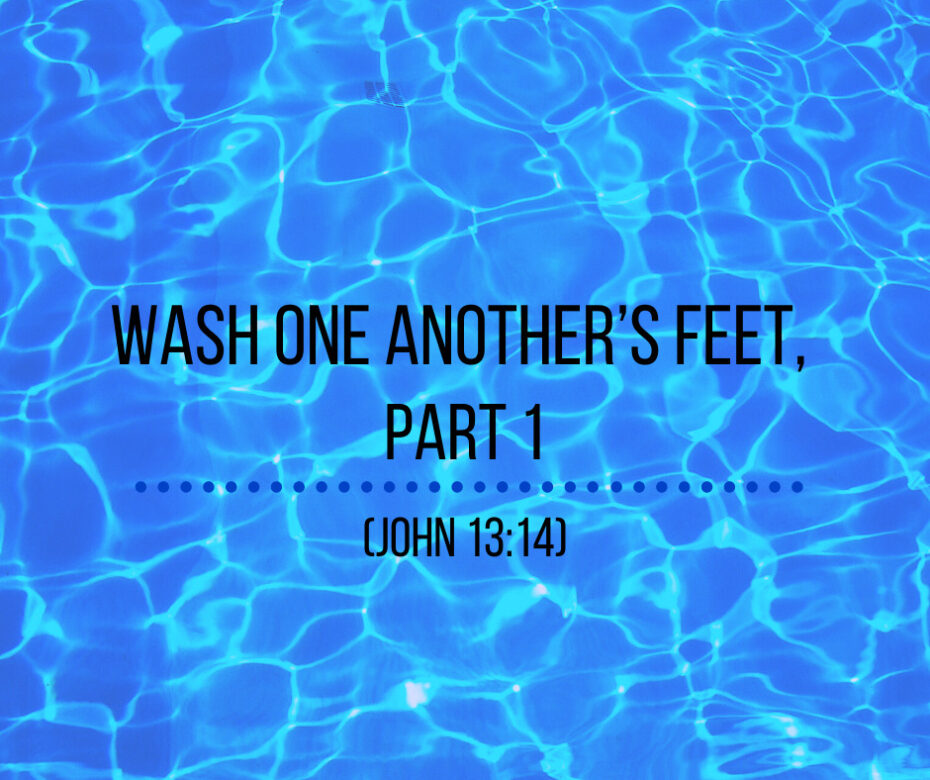Living the normal Christian life requires living a normal church life because God designed discipleship with a strong corporate character.
When I say “corporate,” I’m not talking about the business world but the fact that God created you to belong to a group.
Scripture pictures that group life as a family (Gal 6:10; Rom 8:16) or as organs in a body (1 Cor 12:12) or as bricks in a spiritual house (1 Pet 2:5). You need those other family members, organs, and bricks to be what you were meant to be.
So how do you live a normal church life?
That’s where the 58 “one anothers” help enlarge your imagination of what life in the body should be.
The second “one another” comes from John 13:14. To put it in context:
Jesus, knowing that the Father had given all things into His hands, and that He had come from God and was going to God, rose from supper and laid aside His garments, took a towel and girded Himself. After that, He poured water into a basin and began to wash the disciples’ feet, and to wipe them with the towel with which He was girded (John 13:3-5).
Jesus knew the extent of His present and future authority. Nevertheless, He took off his garments, put on a servant’s towel, and got out the wash basin, which sums up the whole incarnation—of Jesus emptying Himself and becoming a servant (cf. Phil 2:7).
And Peter was scandalized!
Washing filthy feet was a job for servants, not lords (vv 13-14). So he protested, then Jesus insisted it was necessary, and Peter relented. And after washing their feet, the Lord asked if they understood what it meant:
So when He had washed their feet, taken His garments, and sat down again, He said to them, “Do you know what I have done to you?” (John 13:12).
As usual, the disciples looked confused, so Jesus spelled it out for them:
“You call Me Teacher and Lord, and you say well, for so I am. If I then, your Lord and Teacher, have washed your feet, you also ought to wash one another’s feet. For I have given you an example, that you should do as I have done to you. Most assuredly, I say to you, a servant is not greater than his master; nor is he who is sent greater than he who sent him. If you know these things, blessed are you if you do them” (John 13:13-17).
There it is—“You also ought to wash one another’s feet.”
Strictly speaking, this is not about literal foot washing.
Nor is Jesus starting a new ritual alongside baptism and the Lord’s Supper.
As Charles Welch warned, “To set apart one day a year as a ritual act for the washing of a few beggars’ feet, hides from the eyes the perpetual lesson of humility and service behind a stage play of humility in which none are really deceived as to the character of the spectacular acts” (Life Through His Name, p. 376).
Here’s the perpetual lesson for church life: if the King of kings is not above doing the kind of menial service generally reserved for a slave, then neither are you. You are not above Jesus, so serve your neighbor however he or she needs to be served, the way Jesus washed the disciples’ feet.
So look at the people around you, and you’ll see all sorts of ordinary burdens you can lighten with a helping hand. Can you cook an extra meal? Babysit? Change a tire? Set up a computer? Hem pants?
There are as many needs as there are people who have them.
So wash one another’s feet, because it’s not about the lowliness of the service or even the dignity of the servant, but the preciousness of the brother or sister who needs serving.


